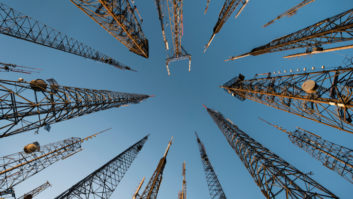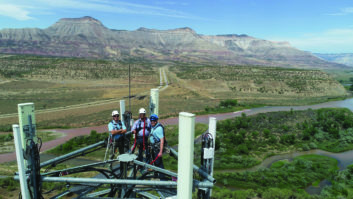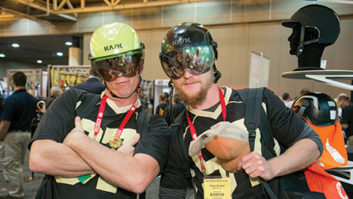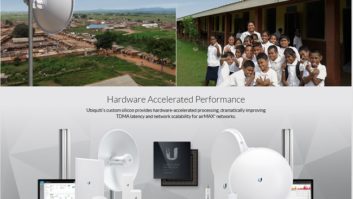AM towers are vertical real estate. Tower leases can provide their broadcast owners with long-term cash flow, but broadcast owners need to watch out for certain pitfalls when making those deals.
That was the essence of the session “Renting AM Towers to Non-Broadcasters — Practical Tips for Managers and Engineers.”
Erwin Krasnow, an attorney with Garvey Schubert Barer, said he has clients who sold their stations, but kept the towers and make more money on the structures than they did when they were operating the station.
Wireless companies typically are looking for tower lease opportunities; however broadcasters need to recognize they’re dealing with members of another industry with different priorities if they enter into agreements with these firms.
“They eat what they kill. They want to do the deal and move on,” said co-presenter Garrison Cavell of Cavell, Mertz & Associates. “We drive them nuts when we give them an indefinite answer. You need to think about the answer should you be approached. They want the response right away, not ‘I’ll get back to you in a while.’”
In preparation for leasing your tower it’s a good idea to check out the zoning restrictions in your area, Cavell advised. Find out whether there are restrictions to adding new antennas to your tower or if new towers would be permitted in the area.
Structural considerations, such as tower loading, come into play as well. Both the broadcaster and the leasee will want to make sure the structure can handle any extra equipment.
If you do decide to lease, make it easy for a company to reach you, Cavell said. Cell owners recommend placing the tower owner’s phone number on the tower fence and site access gate. “Make sure whoever answers that phone does so with intelligence and does not kill a sale.”
Of course, fine-tuning the details of the contract is tricky. A written procedure for how routine problems should be handled and another procedure for emergencies should be spelled out in the agreement between the broadcaster and wireless company.
How much space the leasee will occupy on the tower should be specified in the contract. Both Krasnow and Cavell recommended that the carriers pay for their own electricity separately from the broadcaster and have a separate utility meter installed for them.
Finally, after the broadcaster has consulted communications attorneys and engineering consulting firms, sometimes it just doesn’t pay economically to lease your tower.
Krasnow, along with his law firm partner Henry Solomon, are the authors of “Broadcast Towers: A Step-by-Step Guide to Making Money on Vertical Real Estate,” available at The NAB Store.
©NAB











